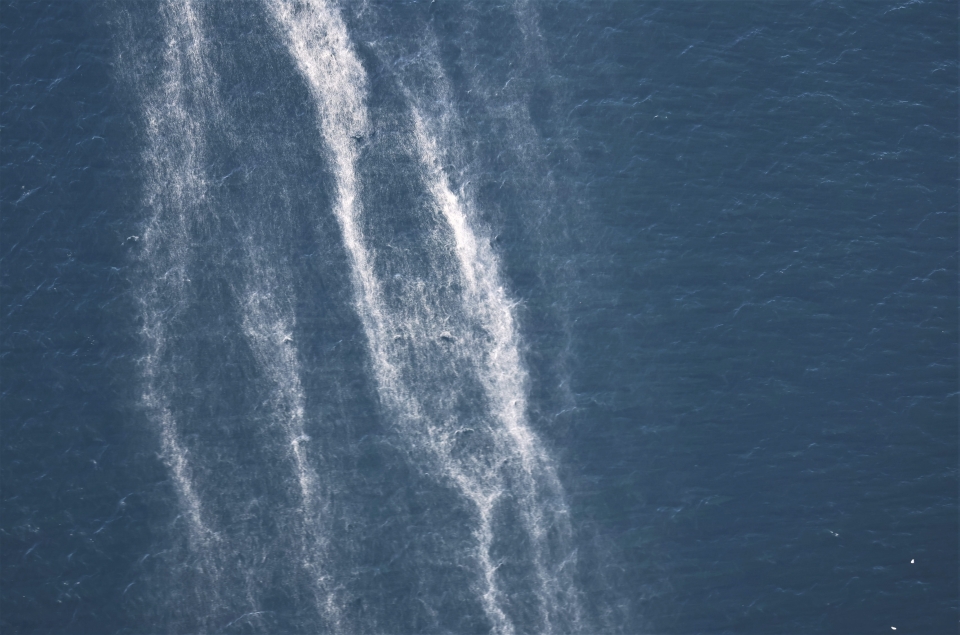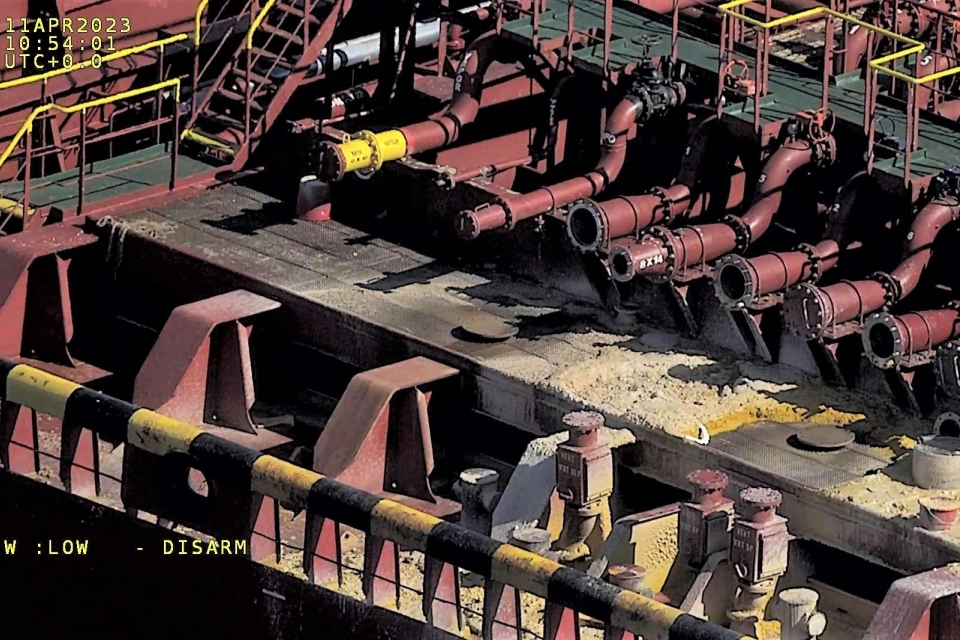On Tuesday, 11 April, Swedish Coast Guard aircraft identified a palm oil spill north of Gotska Sandön covering an area of 10 km2. The suspected tanker was ordered to anchor and was subsequently boarded by Coast Guard personnel. It is not possible to tackle the spill.
The spill occurred in the Swedish economic zone, which requires a prosecutor’s decision in order to take investigative measures. With that decision in place, personnel from the Coast Guard on Djurö and in Oxelösund were able to go on board to conduct interviews and take samples from the ship’s tanks.
‘We have secured evidence and we have a clear source,’ says Jonatan Örn, investigating officer at the Swedish Coast Guard.

Also read: Swedish Coast Guard orders new patrol vessels from Damen
Tank cleaning
The discharge of palm oil is said to have occurred in connection with tank cleaning, which according to international regulations is permitted under certain conditions, such as distance to land, the speed of the ship and that it takes place under the water surface. Tank cleaning is carried out between cargoes so that different substances transported in the ship’s cargo tanks do not react with each other.
‘We suspect that the method used during tank cleaning did not comply with current regulations and that this has led to a large quantity being released. We estimate that at least 600 litres of palm oil reached the sea, which exceeds the permitted amount,’ says Örn.
He adds: ‘This is something we see more and more often in our waters. The transport of various substances used mainly in new fuels is increasing, and so are these types of emissions. Unfortunately, there are no effective legal tools to deal with it today.’
Also read: Swedish Coast Guard investigates possible intoxication in Baltic Sea collision
Difficult to clean up
Emissions of this type of oil are difficult, often not even possible, to combat. In this case, the oil in question is crude palm oil, which is used for both food and biofuel.
Thomas Larsson, who works on emergency response methods at the Swedish Coast Guard: ‘Palm oil is a relatively volatile product, breaking down in water and evaporating in the air. But they are sticky like other oils, and can therefore harm seabirds like any other oil. All discharges into the sea are detrimental to the marine environment and wildlife.’
The suspect vessel was headed for a port in Finland. The Swedish Coast Guard is cooperating in the case with the Swedish Prosecution Service and Finnish authorities.
Picture (top): Traces of the palm oil spill on board the tanker (pictures by the Swedish Coast Guard).
Also read: Philippines launches oil spill response after tanker sinks








